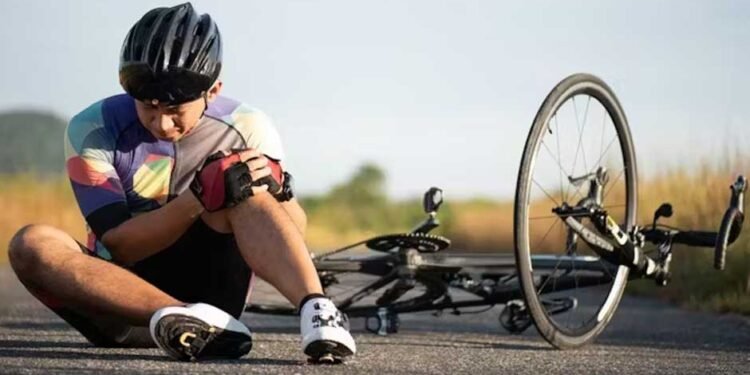If you’ve been hurt in a bicycle accident, your first instinct might be to just try to move on. Maybe you’re shaken up but still standing, or the adrenaline is masking the pain. Or perhaps you’re overwhelmed by the thought of dealing with doctors, insurance companies, missed work, and mounting bills.
In the midst of all this, it’s important to remember that what you do in the hours and days after a bike accident can have a massive impact on your long-term stability and recovery.
Knowing this, let’s break things down in a step-by-step manner so you know exactly how to protect yourself.
Prioritize Your Health Above Everything Else
It’s easy to underestimate your injuries in the moment. You might feel embarrassed, or eager to get back on your feet. But internal injuries, concussions, or soft tissue damage don’t always show up right away. That’s why it’s so important to be seen by a doctor immediately.
Not only does this help ensure you’re properly diagnosed and treated, but it also creates an official record of your injuries – something that becomes incredibly important if you need to file a claim or pursue compensation down the road.
Document While Things Are Fresh
You might not feel like playing detective, but the details you gather now can save you a world of trouble later. Take photos of the accident scene, your bike, any visible injuries, and anything else relevant (like skid marks, traffic signs, or weather conditions). If there were witnesses, get their names and contact information.
Also, write down your own version of events as soon as possible. Memory fades fast, and having a clear account from your point of view can help anchor your case and protect your version of what happened.
Don’t Rush Into Speaking With Insurance
After a bike accident, the driver’s insurance company might reach out quickly – sometimes under the guise of “checking in” or trying to settle things fast. It might even seem convenient. But you need to remember: they are not on your side.
Their goal is to limit what they pay out. They might twist your words, downplay your injuries, or offer a settlement that seems generous but doesn’t come close to covering your full expenses – especially if your recovery takes months or longer.
Until you’ve spoken with an attorney, be cautious with what you share. You’re not obligated to give a recorded statement, and it’s okay to say you need time before making any decisions.
Know the Real Costs
Yes, a serious injury is expensive and comes with lots of medical bills. However, it can also affect your ability to work, your mental health, your family responsibilities, and your long-term quality of life. That’s the real cost!
“A serious injury has a ripple effect in your life,” Rosenthal, Levy, Simon & Sosa. “In addition to the pain and physical challenges, you can’t work and the bills pile up. The stress and uncertainty are overwhelming, and hiring a lawyer can be intimidating.”
But that’s exactly why getting legal support early can make a difference. A good injury attorney doesn’t just fight for your medical bills – they look at the total impact: lost wages, future treatments, therapy, property damage, and even emotional distress.
Find the Right Attorney…Right Away
You want someone who understands bicycle accident cases specifically. These aren’t just car accidents with two wheels instead of four – they come with unique nuances, especially when it comes to traffic laws, right-of-way issues, etc.
Look for a lawyer who knows how to navigate the system and can advocate aggressively on your behalf. More importantly, find someone who takes the time to listen. (A good lawyer will help you understand your options and explain the process in plain language.)
Take Care of Your Mental Health
Being hit while riding your bike can shake your sense of safety and confidence. You might feel angry, anxious, or depressed – especially if your daily life has been disrupted.
Believe us when we say that this is normal. Give yourself permission to grieve, to heal, and to ask for help. Your emotional recovery matters just as much as your physical one.
Don’t wait too long
Every state has its own statute of limitations for filing a personal injury claim – and once that window closes, you can’t reopen it. Even if you think you might want to “wait and see how things go,” it’s smart to at least explore your legal options early.
The longer you wait, the harder it becomes to gather evidence and track down witnesses. And if your symptoms worsen over time, you’ll want to be in a position to act – not scramble to catch up.
Adding it All Up
Being hurt in a bicycle accident isn’t just an inconvenience – it can be a life-altering event. And in the chaos that follows, it’s easy to make decisions that shortchange your recovery or your rights. But you don’t have to figure it out alone. If you take nothing else from this article, remember that you should hire a good personal injury attorney and let them take the reins.












